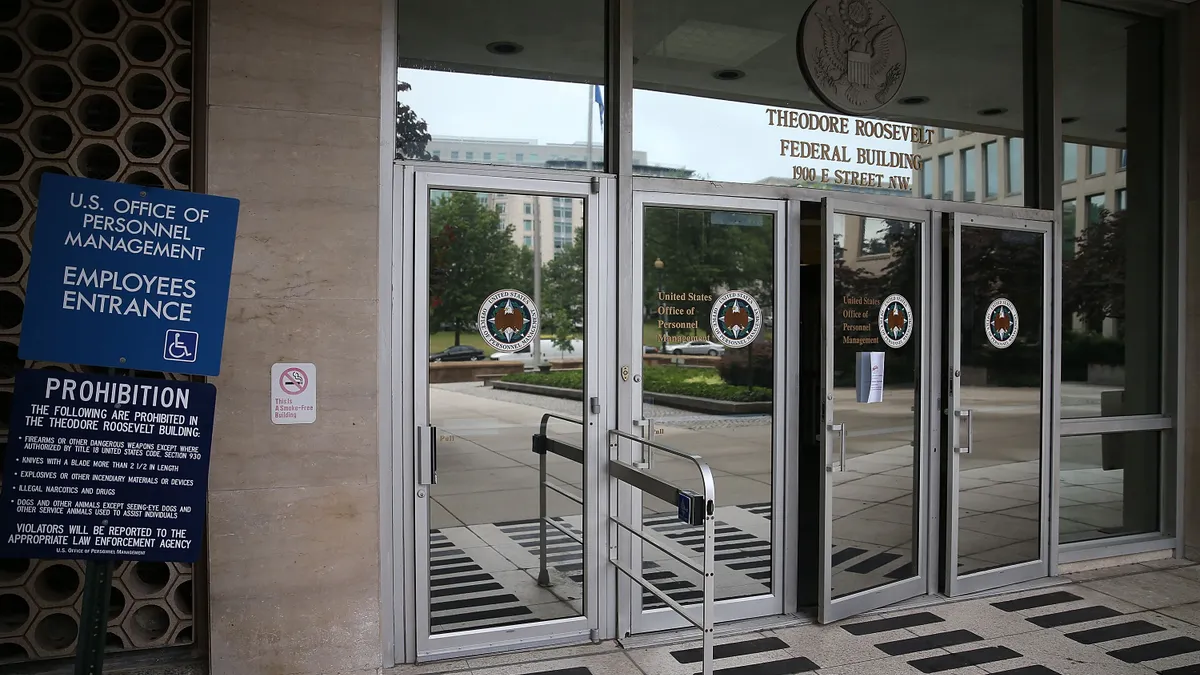Dive Brief:
- The Biden administration announced three separate initiatives Monday that would prohibit federal agencies, contractors and subcontractors from seeking or considering pay history, including a final rule requiring agencies to comply by Oct. 1, 2024.
- Separately, a Federal Acquisition Regulatory Council proposal would prohibit contractors and subcontractors from seeking pay history and would require them to disclose pay ranges in job postings, according to a White House statement. The Office of Federal Contract Compliance Programs will also issue guidance “clarifying existing protections against discrimination in hiring or pay decisions,” the White House said.
- The Office of Personnel Management previously issued a proposed rule to prohibit salary history in setting pay for agency job offers last May. The proposals are intended, in part, to close wage gaps in the federal workforce, the White House said.
Dive Insight:
Monday’s announcement marks a follow-up to two prior executive orders from President Joe Biden on the subject of pay equity.
For example, Biden’s 2021 executive order directing the federal government to establish a government-wide diversity, equity, inclusion and accessibility plan tasked OPM and other agencies to assess whether pay and compensation policies were equitable. A 2022 order said OPM “anticipates issuing a proposed rule that will address the use of salary history” and directed the agency to consider “parallel efforts with respect to Federal procurement.”
Each of the measures included in Monday’s announcement reflect growing trends already playing out on the state and local levels. At press time, 21 state governments have passed laws restricting or prohibiting the use of pay history information in the hiring process. Laws in Michigan and Wisconsin prohibit local governments from issuing such restrictions.
On the pay transparency front, five states and a few local jurisdictions have laws requiring employers to disclose pay or pay ranges in job postings. Washington, D.C., is set to join this group as well, having passed a bill to establish both pay history restrictions and pay transparency requirements for employers earlier this month.
Pay history bans do not prevent job candidates from voluntarily disclosing their pay histories, however. Laws in some jurisdictions permit employers to consider salary history that is voluntarily disclosed, but employers may need to be careful to document such situations when they occur, sources previously told HR Dive.
Research on the gender-based pay disparities has yielded some evidence that pay gaps between men and women have shrunk in certain job categories. A 2023 Aquent report found that the pay gap between women and men in marketing, creative and design occupations was 2.7% in 2022, down from 16% in 2021. More than two-thirds of organizations in a 2023 survey by WorldatWork and Fidelity Investments said they were addressing pay equity issues.












